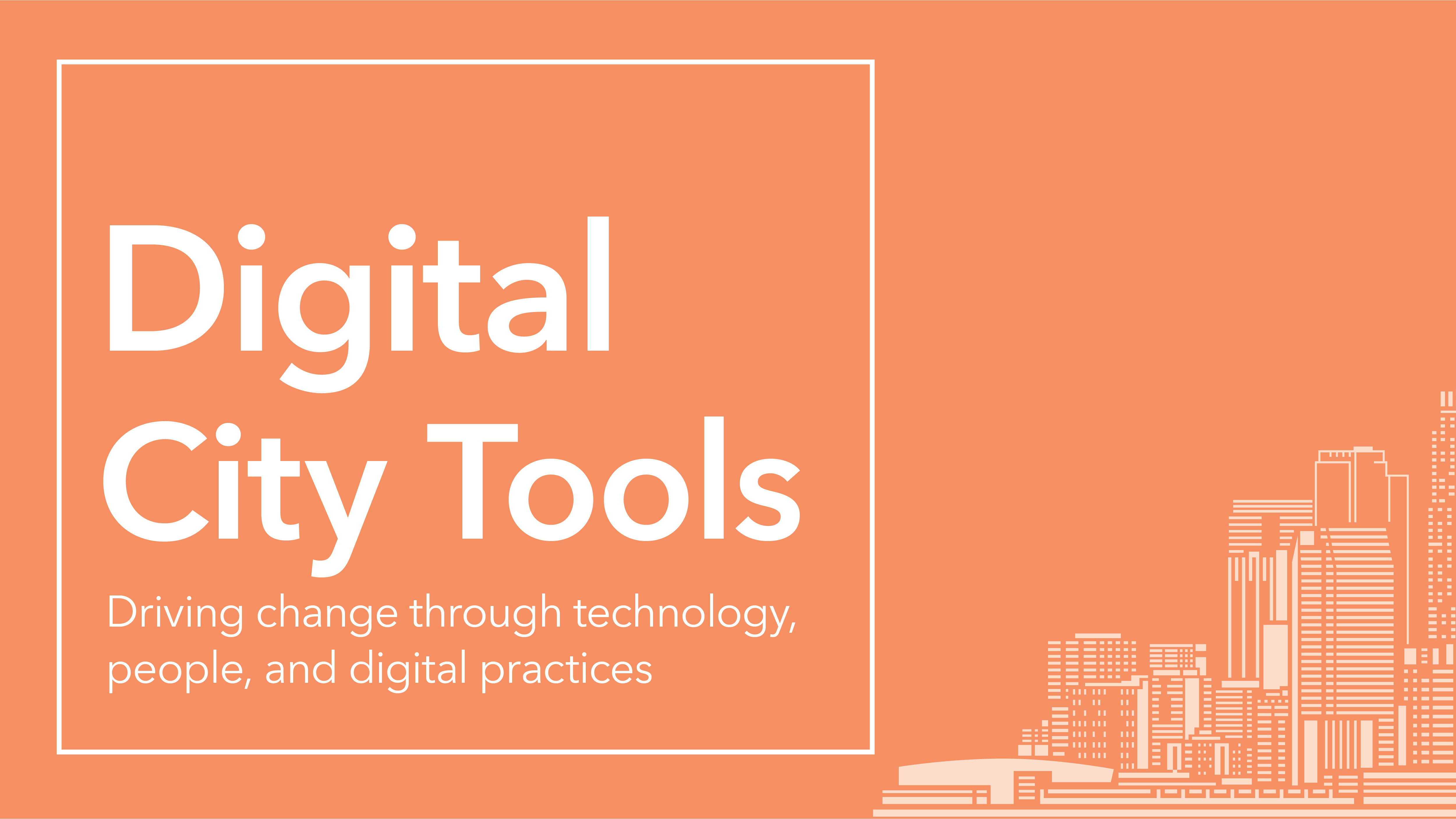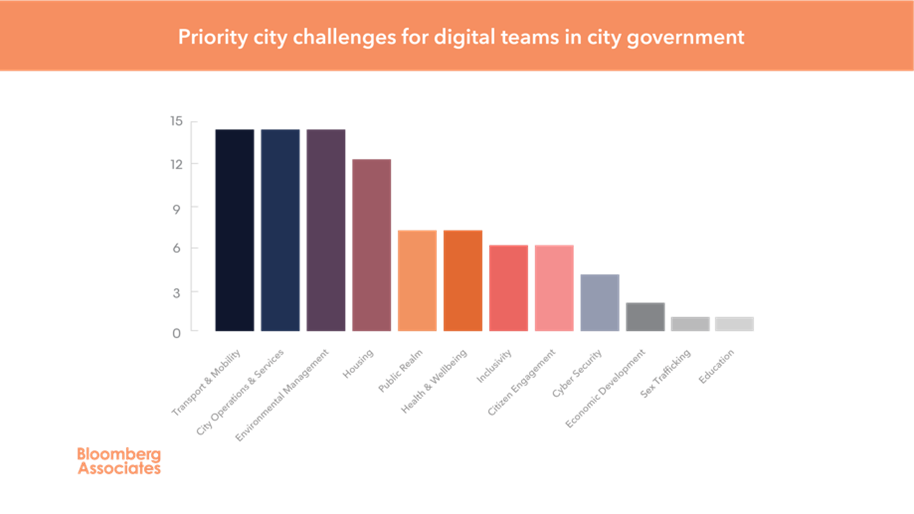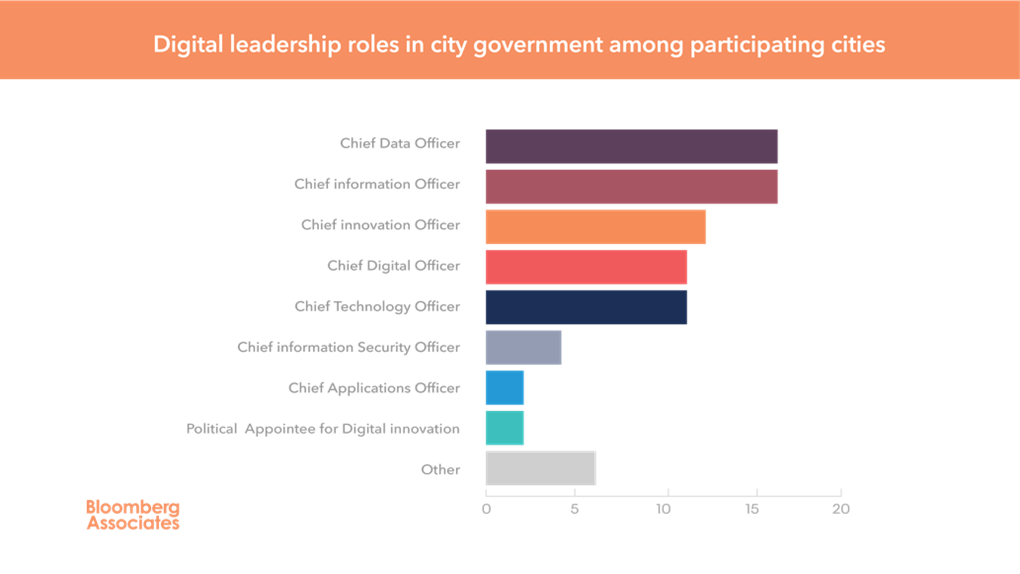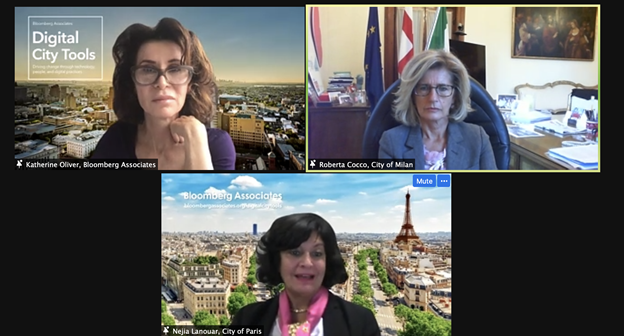Digital City Tools 2020: Driving change through technology, people, and digital practices

City governments around the world are using technology to overcome challenges and drive progress, and Bloomberg Associates’ Media and Digital Strategies team captured some of these innovative efforts in a Digital City Tools 2020 report.
The report maps the deployment of 41 technologies across five areas in city government: connectivity, data, city operations, transport and mobility, and safety and security, and looks at how these technologies are applied to specific city challenges and priorities. By sharing this information between cities, we hope city leaders can identify which cities they can learn from in certain areas and take inspiration from new approaches to common challenges.

Through our interviews, we gleaned many insights about the digital and leadership practices that underpin the successful deployment of these technologies. Most notably:
- The pandemic has shone a light on the need to develop comprehensive ‘digital resilience.’ City governments are essential to the continuation of city life, and we have seen how technology has been vital in allowing services to continue operating, staff to work remotely, data to be shared easily and securely during a time of crisis.
- City Leadership recognize the importance of technological tools but often do not distinguish between these and a deeper understanding of digital practices, like taking a human-centered approach to designing resident services, at the organizational level.
- “Digital” is much more than technology, but municipal structures often don’t reflect this. Digital and technology leadership roles themselves are evolving, as it is recognized that dedicated leadership is needed in certain areas, but competition still exists between city departments and digital teams, and even other public agencies. True cross-city collaboration has not yet become the norm.
- Cities have more experience with connectivity technologies than other technology types but are cautious about the benefits of 5G. They are willing to wait and see what opportunities emerge as this emerging technology matures, despite the heavy investments already been made into digital infrastructure.
- Data-driven decision making is still a goal and not a common reality. Few cities have the right data infrastructure, standards and approaches to data sharing in place to take full advantage of these tools, and so they are struggling to really put the data they have to work.
- Incremental steps can reap big rewards. There are different ways to bring about a digital transformation, but doing it incrementally gives the greatest chance of success, as witnessed in the six case studies presented in the report. Developing a digital culture and embedding digital tools and processes into city operations takes time, planning, investment and patience.

During a virtual launch event for Digital City Tools 2020 the Bloomberg Associates team was joined by digital leaders from cities featured in the report. To kick off these conversations, Mikko Rusama, the Chief Digital Officer for the City of Helsinki, talked about how the Finnish city is moving to a model of preventive healthcare by using patient data to proactively identify health risks and direct vulnerable residents towards the right treatments before their issues escalate.
Katherine Oliver, Principal of the Media and Digital Strategies team facilitated a conversation with Roberta Cocco, Deputy Mayor for Digital Transformation and Citizen’s Services in the City of Milan, and Nejia Lanouar, Chief Information Officer of the City of Paris. During this fireside chat the digital leaders shared their experiences, challenges and capabilities that have allowed them to build the digital resiliency that prepared these cities to better respond to unforeseen circumstances.
As one of the first major European cities hit by a surge in COVID-19 cases earlier this year, Milan’s story of digital resilience – as told by Deputy Mayor Cocco – is one worth analyzing and learning from. The Comune di Milano has placed a lot of emphasis on the digitization of services, and this digitization push is supported by a comprehensive program of digital inclusion and digital skills training for residents. Because Milan had already begun developing tools and digitization efforts to prepare the city for large-scale challenges such as climate change, the city was better prepared to respond to the pandemic by allowing residents to benefit from remote government service delivery.
Paris’ approach to digital and innovation, led by First Deputy Mayor Emmanuel Gregoire and the city’s CIO Nejia Lanouar, harnesses the power of open source tools, including their own open source platform, Lutece. Over the last five years, Paris has built more than 70 digital services in-house, using this platform. The push for open source developments has allowed the city to promote to its residents a better understanding on how the government uses their data to improve urban services and provide them with solutions so that they can maintain control over their information.

The Digital City Tools 2020 report explores the ways in which these and 28 other innovative city governments are embracing technology and transforming the culture of their organizations. Cities face local challenges serving their residents, but they also face global challenges like climate change and pandemics. At Bloomberg Associates, we believe cities can learn from each other, and the 2020 edition of our Digital City Tools report allows cities to share their own experiences and solutions to these varied problems with one another and with the public at large. We hope this report unifies digital leaders across city governments and supports their transformational work by sharing lessons learned as well as best practices for times of crisis and the everyday delivery of service to residents of cities around the world.